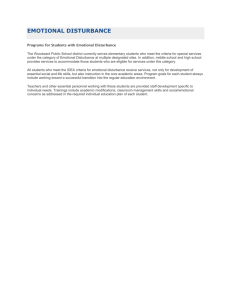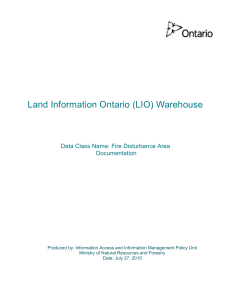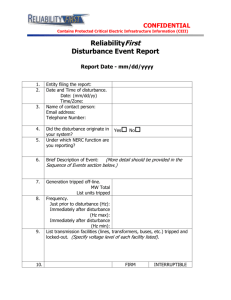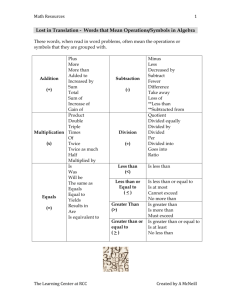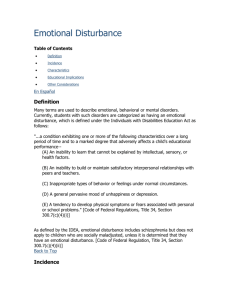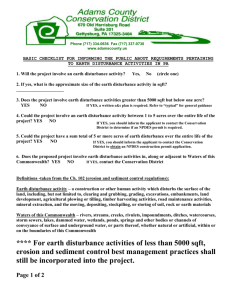Department of Biological Sciences Ethics Committee: Project
advertisement
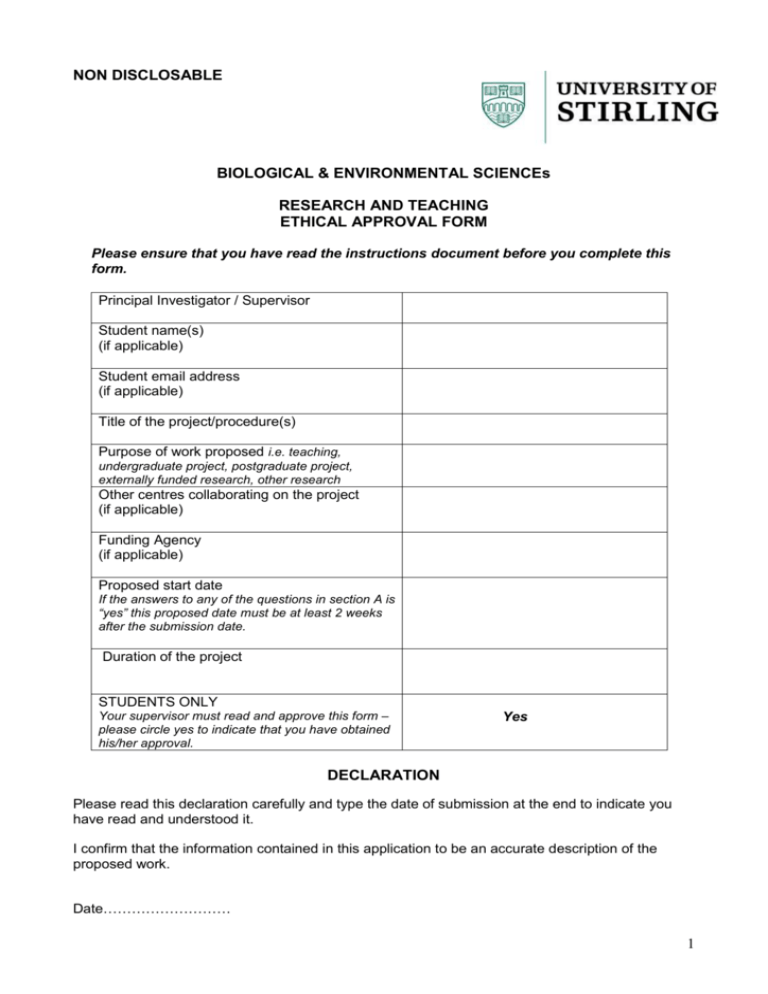
NON DISCLOSABLE BIOLOGICAL & ENVIRONMENTAL SCIENCEs RESEARCH AND TEACHING ETHICAL APPROVAL FORM Please ensure that you have read the instructions document before you complete this form. Principal Investigator / Supervisor Student name(s) (if applicable) Student email address (if applicable) Title of the project/procedure(s) Purpose of work proposed i.e. teaching, undergraduate project, postgraduate project, externally funded research, other research Other centres collaborating on the project (if applicable) Funding Agency (if applicable) Proposed start date If the answers to any of the questions in section A is “yes” this proposed date must be at least 2 weeks after the submission date. Duration of the project STUDENTS ONLY Your supervisor must read and approve this form – please circle yes to indicate that you have obtained his/her approval. Yes DECLARATION Please read this declaration carefully and type the date of submission at the end to indicate you have read and understood it. I confirm that the information contained in this application to be an accurate description of the proposed work. Date……………………… 1 Section A Complete the table below: answer yes or no to each question. If the answer to all the questions is “no” you do not need to complete the rest of the form, but you do need to submit an electronic copy to Kirsty Park (k.j.park@stir.ac.uk). Do NOT submit a hard copy. If the answer to any of these questions is “yes” please complete the appropriate section (B-E) and submit an electronic copy to Kirsty Park. Do NOT submit a hard copy. Students whose supervisors have an existing procedural form (see instructions for explanation) need to complete pages 1&2 of this document but can circle “procedural” at the bottom of the table below. They do NOT need to complete the rest of the form. The term “animal” used in these questions should be taken to mean an animal with a well developed nervous system and a brain (e.g. vertebrates, insects, molluscs, worms but NOT bacteria). Please circle yes or no as appropriate to each question below. If “yes”, complete the appropriate section(s) indicated. Does the proposed work involve human subjects or human derived material e.g. in questionnaires, physiological or psychological testing? Yes / No If “yes” go to section B Does the proposed work involve the capture, removal from the wild and/or destruction of animals? Yes / No If “yes” go to section C Could the proposed work result in disturbance to any animal e.g. through observations made near bird nesting sites? Yes / No If “yes” go to section C Does the proposed work involve observations made on captive animals and/or on animals cultured in the laboratory? Yes / No If “yes” go to section C Does the proposed work involve activities which could temporarily or permanently damage or disturb the environment (e.g. removal of wild plants) or archaeological remains and artefacts? Yes / No If “yes” go to section D Does the proposed work involve a potential conflict of interest or raise ethical issues regarding the source of funding or where publication of research data may be restricted? Yes / No Go to section E STAFF ONLY If the answer to any of the questions above is “yes” please indicate whether you are applying for a project or a procedural based application? See page 1 of this form for an explanation of these terms. UNDERGRADUATE/MSC STUDENTS ONLY If the answer to any of the questions above is “yes”, please indicate whether you are applying for a project based application OR if you have read and understood your supervisor’s existing procedural form Project / Procedural Project / Procedural 2 SECTION B Use of human subjects or human derived material Aim of project. Please outline the main aims of your project including hypotheses to be tested / questions addressed. Do not exceed 100 words. Project methods. Please outline the methods you will use to carry out this project (e.g. sample sizes, recruitment methods). Do not exceed 200 words. Yes 1. 2. 3. No N/A Will participants be informed of the nature and purpose of the study? Will you tell participants that their participation is voluntary and that they may withdraw at any stage? Will you obtain written consent for participation? 4. Will you tell participants that their data will be treated with full confidentiality and that, if published, it will not be identifiable as theirs? 5. If research is observational, will you ask participants for their consent to being observed? If you have answered NO to any of the questions 1-5 please provide more information below: 6. Will children (under 18 yrs) or vulnerable adults be involved in this study? 7. Is there any realistic risk of any participants experiencing either physical or psychological distress or discomfort? 8. Will your project involve deliberately misleading participants in any way? If you have answered YES to any of the questions 6-7 please provide more information below: 9. All studies involving the use of questionnaires have to submit the questionnaire along with the ethics form – have you included this in your application? 3 SECTION C Use of animals involving capture, removal, destruction and/or disturbance Aim of project. Please outline the main aims of your project including hypotheses to be tested / questions addressed. Do not exceed 100 words. Project methods. Please outline the methods you will use to carry out this project (e.g. sample sizes, recruitment methods). Do not exceed 200 words. Organisms involved in the study Invertebrates Vertebrates Cephalopods Other (describe) Approximate number used Species names (Latin and common). If information on either species names or approximate number of individuals to be used cannot be provided, please provide further information below: Information for studies involving the capture, removal or destruction of any animal For your response please address the following questions: 1. How will organisms will be obtained?; 2. If they are kept during the study how will they be maintained?; 3. What will happen to them throughout the duration of the study?; 4. How will they be released or disposed of at the end of the study?; 5. What adverse effects are any animals used in this study likely to suffer and how will these effects be minimised? If not applicable write N/A in the space below. Information for observational studies involving possible disturbance to an animal species? Provide information on how animals in the wild or captivity might be disturbed as a result of this study and what efforts will be made to keep any disturbance to an absolute minimum? Do not exceed 200 words. If not applicable write N/A in the space below. 4 SECTION D Possible damage or disturbance to the environment (including removal of wild plants) or archaeological remains and artefacts Aim of project. Please outline the main aims of your project including hypotheses to be tested / questions addressed. Do not exceed 100 words. Project methods. Please outline the methods you will use to carry out this project (e.g. sample sizes, recruitment methods). Do not exceed 200 words. Explain how this work may cause damage or disturbance to the environment and how this will be minimised Explain how this work may cause damage or disturbance to archaeological remains and artefacts and how this will be minimised? 5 SECTION E Potential conflicts of interest or other ethical issues Please provide further information about any proposed work that may involve a potential conflict of interest or raise ethical issues regarding the source of funding or where publication of research data may be restricted 6
